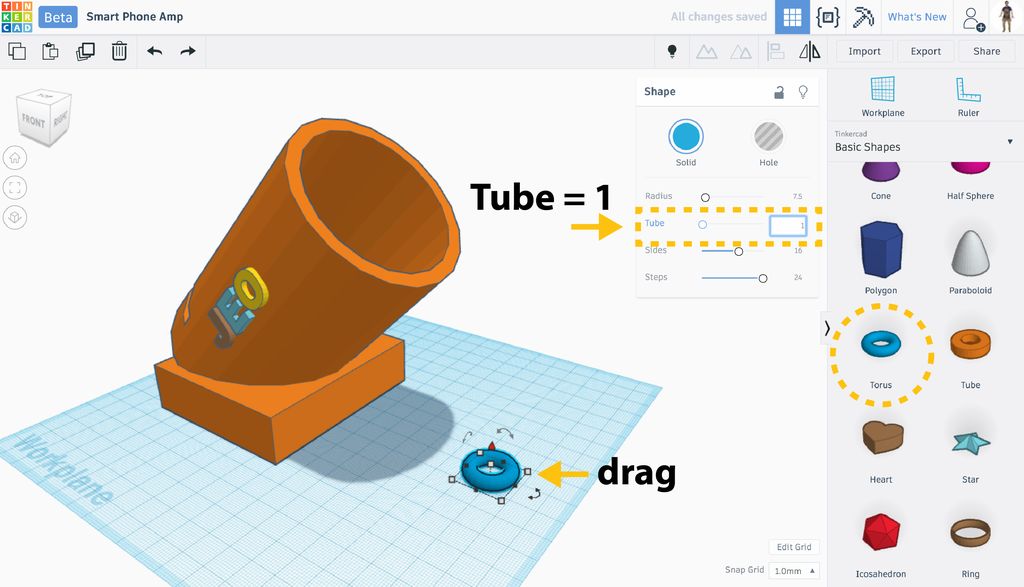3D Printing
3D modeling with Tinkercad
Tinkercad
Tinkercad video tutorial
SculptGL — you can export an .obj file from Tinkercad, and do fine tuning here

The flat grid plane matches the build plate of the 3D printer
Mouse right-click moves the workplane
Mousewheel zooms in/out
To use shapes as cutting tools:
Select hole instead of solid. The shape will create a negative space, but it will still be present (and you can switch back to solid). To truly cut into a shape, select the entire set of shapes and then group the shapes.
Export filetypes:
.stl — for 3D printing (ignores colors and surface textures; smaller file). We'll work with this file in FlashPrint
.obj — for further object manipulations in other software (like SculptGL)
.gx — the filetype created by FlashPrint that is needed for the actual 3D printer
Premade designs:
Search on Tinkercad. Many designs offer a "Copy and Tinker" option.
3D printing
Reality:
- This is NOT going to make things with the quality of toys available at Rotofugi
- Rounded surfaces may end up faceted
- Tiny and delicate details—especially those that stick out into space—may simply break off or fail to print properly
Expect the print to be fairly close to what you designed in Tinkercad.
When you make a design in Tinkercad, you will want to export it as an .stl file.
Open this new file with FlashPrint, where you will scale the design and add supports for parts that lean or overhang.
Read this first: 3D printing notes